Google Dodges All Remedies in Search Engine Monopoly Case
Judge Mehta rules that Google will not need to sell Chrome. Or Android. And will be allowed to continue providing 80%+ of Mozilla's revenue. In fact, no real punishment at all.
Judge Amit Priyavadan Mehta, a 2014 appointee of President Barack Hussein Obama II, has issued his long anticipated, final ruling in the remedy phase in the case of USA v. Google.
Back in 2024, Judge Mehta ruled that Google had — as lawyers for the USA easily argued — illegally monopolized the Search Engine market.
The proposed remedies to that ruling were many and varied — from Google being forced to sell off the Chrome web browser, to Google being forced to cease all “default search engine placement” payments to corporations like Mozilla.
However, in a move which is sure to make Google (and Mozilla) happy, Judge Mehta opted to not enforce any of the significant remedy proposals.
Google can keep Chrome.
Google can keep Android.
Google can continue paying for default Search Engine placement.
In other words: No significant changes. At all.
As you read through all 230 pages of this ruling, it is almost shocking how every single proposed remedy is shot down. Big or small. One after another.
The idea of “forced divestiture of Chrome” (meaning Google would sell off Chrome to another organization) was declined as having “not met [the] heavy burden to warrant the radical structural remedy”.
Likewise, the notion of a “forced divestiture” of Android was proposed.
Also shot down.
And, in a decision which is going to cause many Mozilla executives to breath a sigh of relief, Google will be allowed to continue paying other corporations for “default Search Engine placement”.
At present, Mozilla earns over 80% of their revenue from exactly such a deal — by making Google the default search engine in Firefox. That deal will be allowed, by the courts, to continue.
This is fascinating as this exact practice was specifically called out as one of the reasons why Google was found guilty last year. And, yet, the courts now say Google is — specifically — allowed to continue their illegal practice.
Even the smaller remedy proposals were declined.
In fact, one of the most common phrase in this ruling, from Judge Mehta, is “the court declines.”
Over and over again. “The court declines.”
“How about some sort of remedy for publishers?”
“The court declines.”
“Ok, how about a remedy payment for…”
“The court declines.”
“Well, what about mandating that Google share some of this Search Engine data…”
“The court declines.”
“How about this other type of Search Engine data? Or maybe Google could pay a little money into some sort of Educational Fund?”
Hey! Read my lips. “The court declines”!
The ruling goes on and on like that. For 230 pages.
If they made a movie about this court case it would need to be called “The Court Declines”.
What is truly bizarre is how Judge Mehta makes it clear, in this ruling (and his previous one), that:
Google was not only guilty of illegal monopoly practices… but obviously and overwhelmingly so and…
That many of the proposed remedies both have significant precedent and, in fact, go less far than past actions in similar cases.
And, yet, Judge Mehta shot down those remedies. Even remedies which were simply “Google should stop doing the thing the court just ruled is illegal” were “declined”.
Judge Mehta repeatedly suggested that remedies should not be imposed against Google… because those remedies might make other companies sad.
Such as Mozilla. Google needs to keep making illegal payments to Mozilla because it would make Mozilla sad to not get illegal money.
In many ways, this reads like a judge who had been bought off by the mafia in a murder trial.
“The Defendant has been found guilty of murdering 22 people with a hammer,” the judge says, eyes darting nervously around the court room, sweat pouring down his forehead. “And… uhhh… it would certainly be expected that… uhhh… he would get the chair. Or at least… uhh… a lot of jail time.”
“But… uh… it would certainly make him… you know… super sad to be… you know… punished. And… oh… the bakery he likes to visit wouldn’t get his business anymore. You know. If he was in jail. That would make the bakery sad to lose a customer. Maybe they wouldn’t be able to make cupcakes anymore? So he should probably be released. You know. Without punishment.”
What happens next?
Well, Google has still been found guilty of antitrust violations. Which, as long as that ruling stands, the possibility of other cases rulings against them remains higher. As such, it seems likely that Google will seek to appeal that ruling.
Likewise, it seems entirely reasonable that the US may opt to appeal this remedy ruling.
In other words: The can gets kicked down the road. Nothing, at the moment, changes. Illegal practices continue. Mozilla survives another day.
You can download and read the entire PDF of the September 2nd, 2025 Remedy ruling by Judge Mehta here:
The Lunduke Journal is the last bastion of truly independent Tech Journalism.
Ad Free, Big Tech Free, Non-Woke, Audience Supported.
Work for a Big Tech corporation or Tech Foundation? See something? Want to say something? Reach out to The Lunduke Journal and become a whistleblower.


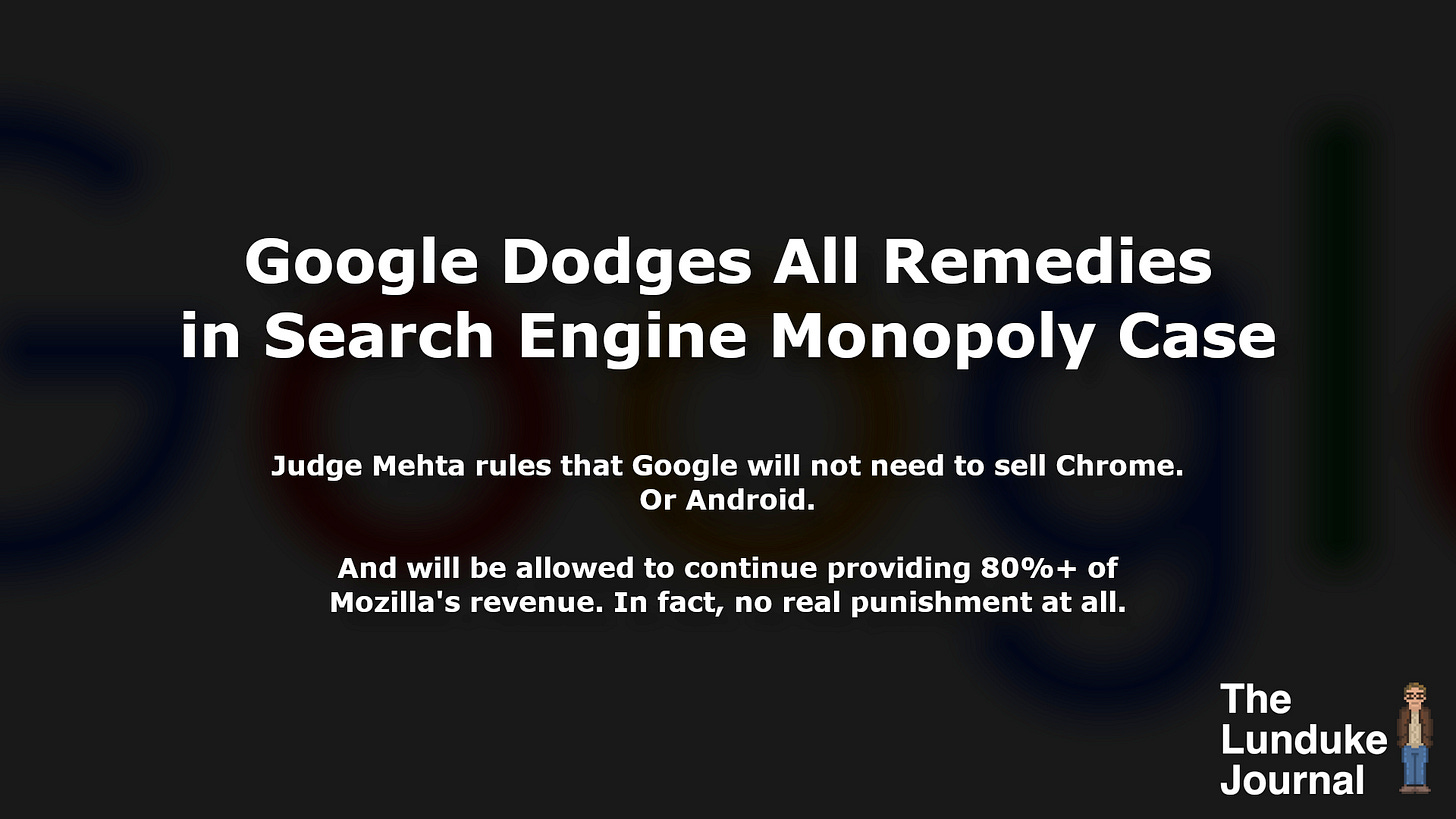
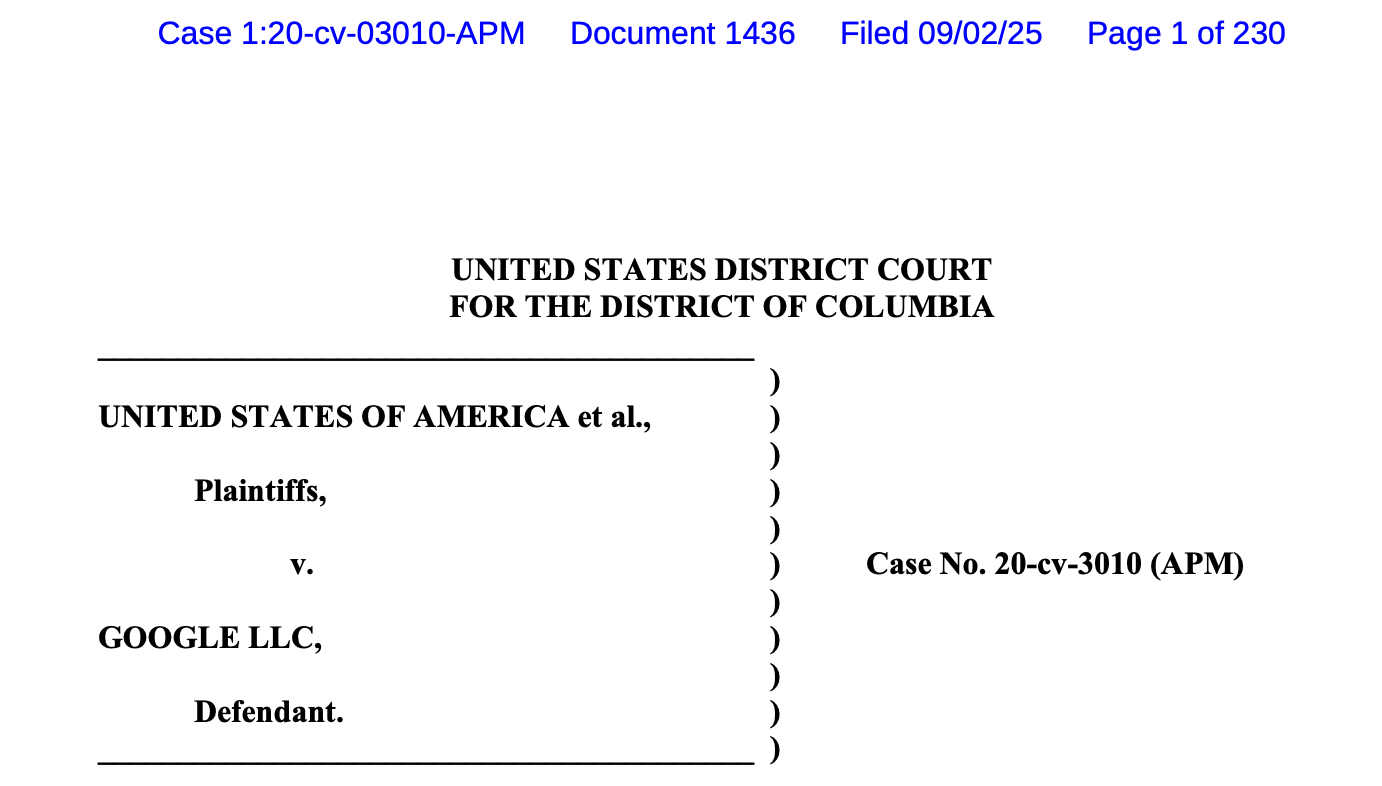

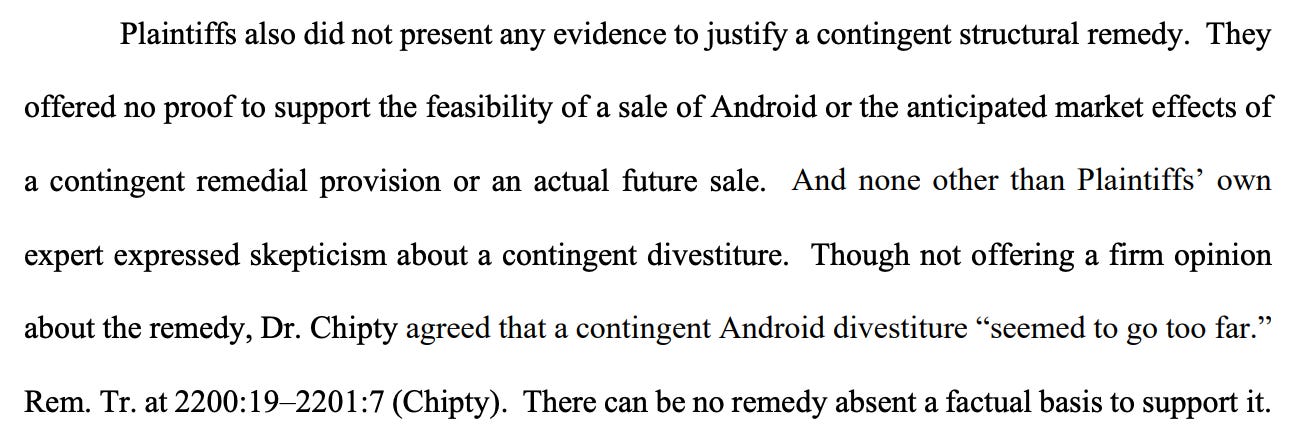
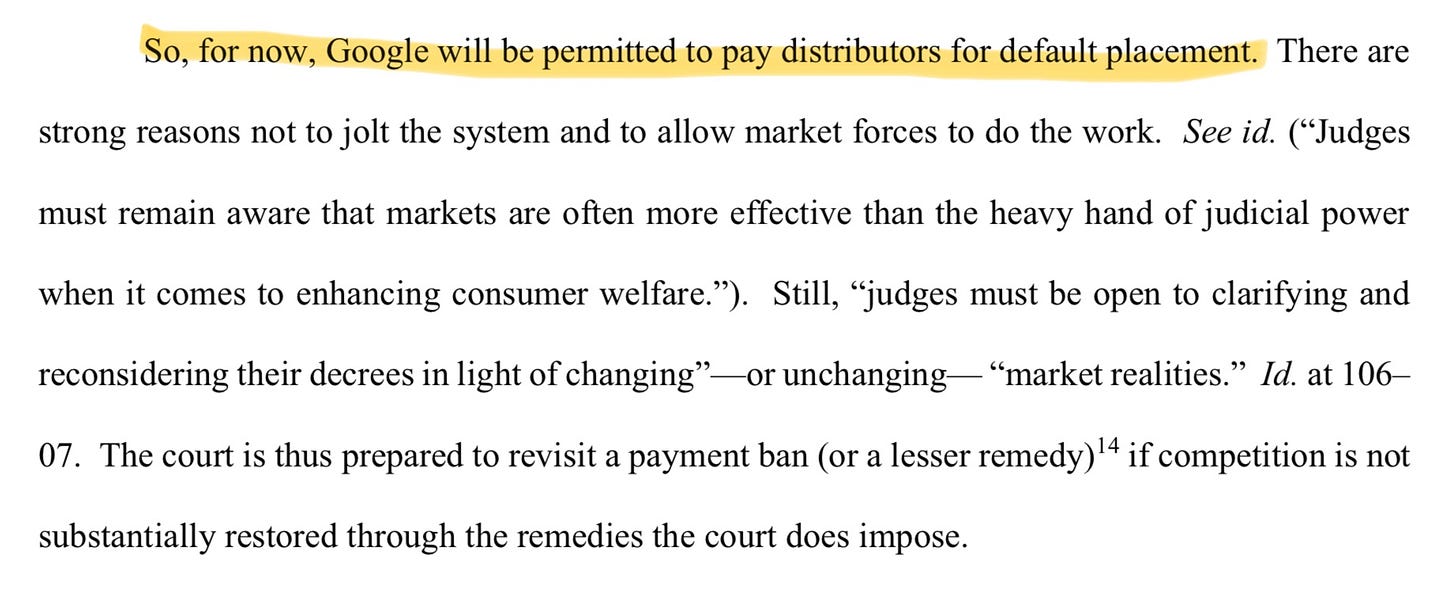
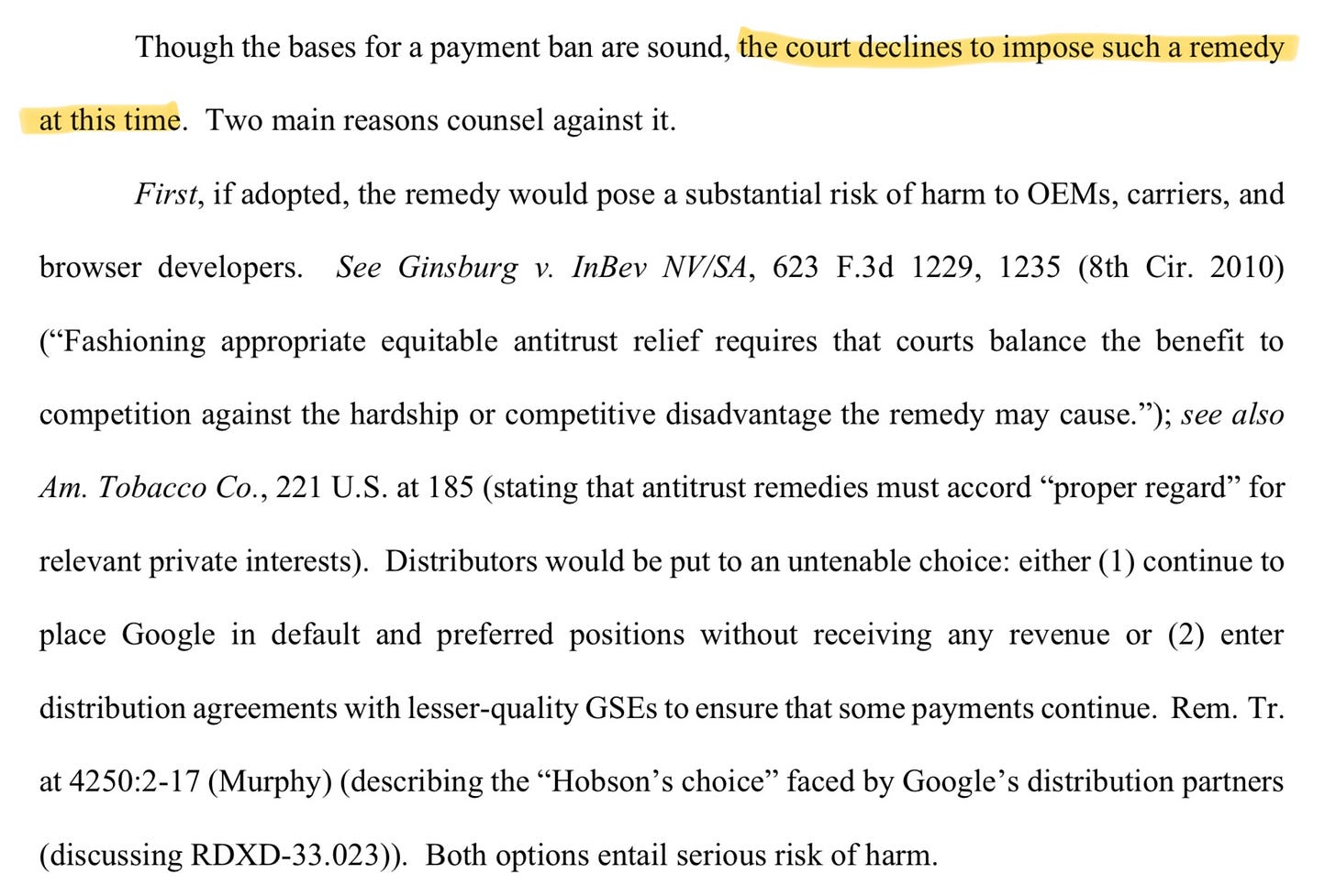




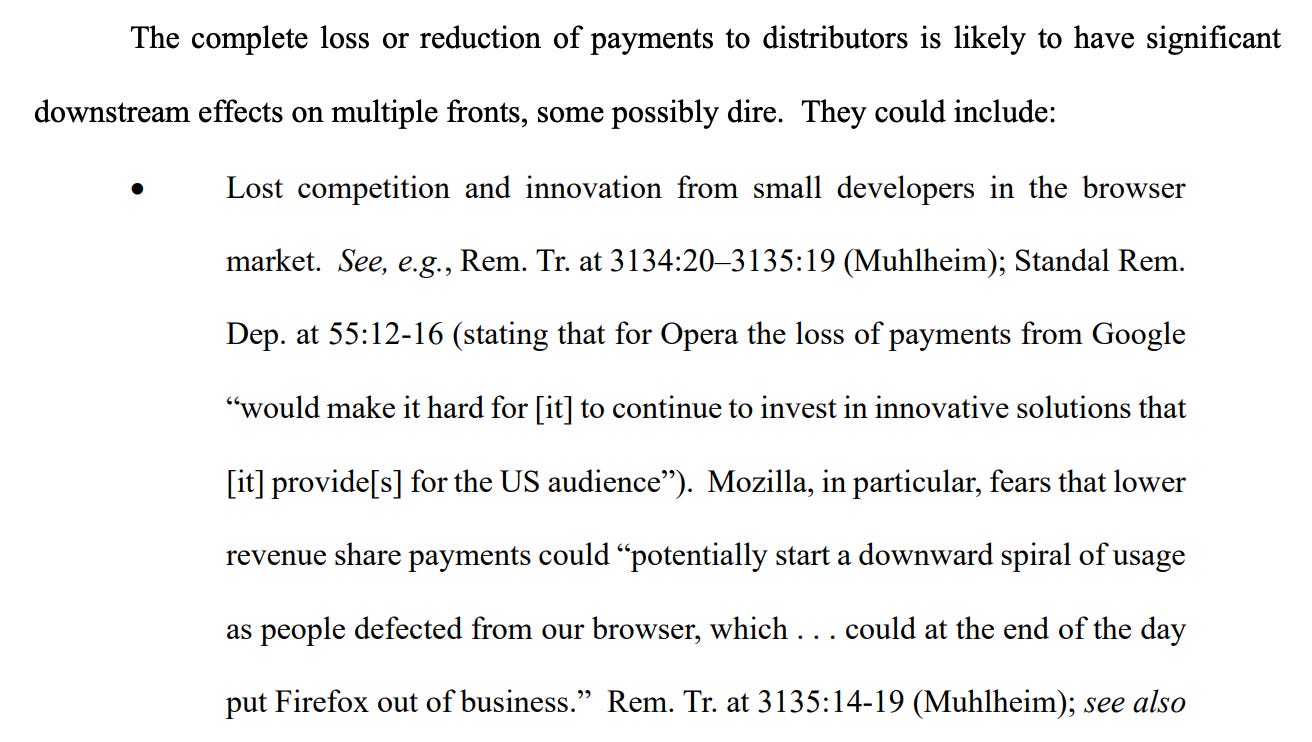
Much as Google needs to be smacked with a hammer, I don't think divestiture would accomplish squat. The body parts would be sold to crony outfits (who was it we were speculating would snarf up Chrome, the Linux Foundation?) and they'd have plausible deniability for the monopoly to go on as before, except now with added money laundering. At least as things are, we know where all the bad actors stand.